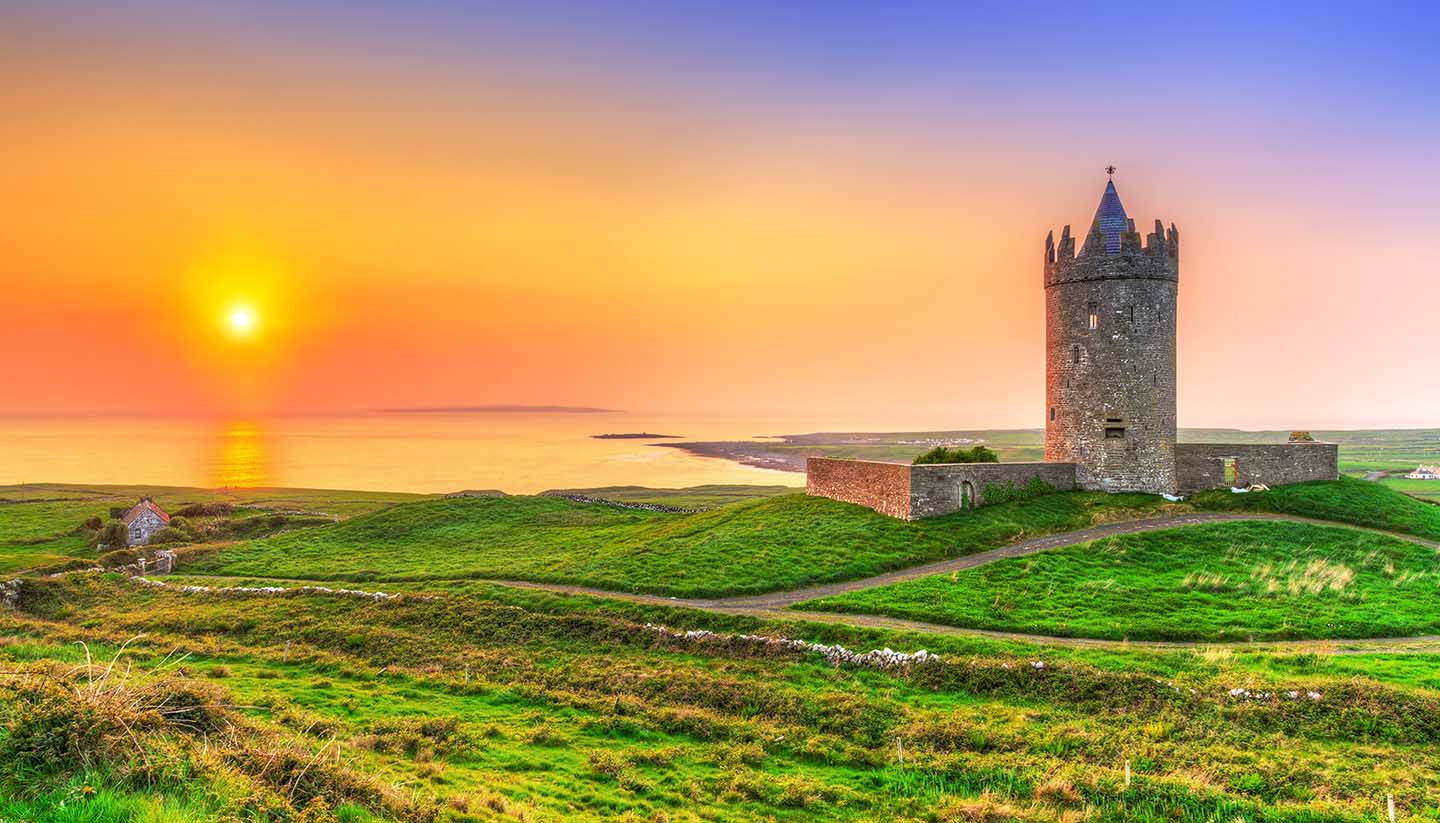Money and duty free for Ireland
Currency and Money
Currency information
Euro (EUR; symbol €) = 100 cents. Notes are in denominations of €500, 200, 100, 50, 20, 10 and 5. Coins are in denominations of €2 and 1, and 50, 20, 10, 5, 2 and 1 cents.
Credit cards
Credit cards are widely accepted across Ireland, including in small towns. Visa and Mastercard are the most commonly used, while American Express and Diners Club may not be accepted everywhere. Contactless payments and mobile payment systems such as Apple Pay and Google Pay are common.
ATM
ATMs are widely available in cities and towns, and most accept international cards. Many shops and petrol stations also offer cashback with card purchases.
Banking hours
Mon-Fri 09:30 to 16:30. Some branches open later on Thursdays and close earlier on Fridays.
Currency restrictions
Travellers entering or leaving Ireland with €10,000 or more in cash (or its equivalent in other currencies or instruments) must declare it to Irish Customs. Declaration forms are available at ports and airports, and failure to declare may result in seizure and penalties.
Ireland duty free
Overview
Ireland's duty-free allowance for travellers arriving from within the EU:
Travellers (aged 17 and over) arriving from other EU countries can bring in most goods without paying additional duty or tax, provided these goods are for personal use. However, there are indicative limits for certain products:
• 800 cigarettes or 400 cigarillos or 200 cigars or 1 kg of smoking tobacco.
• 10 L of spirits or 20 L of fortified wine.
• 90 L of wine (60 L of which can be sparkling).
• 110 L of beer.
Ireland's duty-free allowance for travellers arriving from outside the EU:
If you are arriving from a non-EU country, the following goods may be imported into Ireland by travellers over 17 years of age without incurring customs duty:
• 200 cigarettes or 100 cigarillos or 50 cigars or 250g of tobacco. You may combine these tobacco products provided the total limit is not exceeded.
• 1L of spirits over 22% alcohol by volume or 2L of alcoholic beverages less than 22% alcohol by volume, or a proportional combination of these two categories.
• 4L of wine.
• 16L of beer.
• Other goods up to the value of €430 for air or sea passengers (reduced to €215 for travellers under 15).
Banned Imports
Banned imports include illegal drugs (including cannabis and CBD products), offensive weapons, indecent or obscene material, certain foodstuffs (meat and dairy products from non-EU countries are generally prohibited to prevent the spread of diseases), protected species, and counterfeit goods.
There is a ban on the import of the following goods from the Russian Federation into the EU: diamonds, gold, jewellery, cigarettes, cosmetics, seafood (e.g. caviar), spirits (e.g. vodka), shoes, clothing and smartwatches.
This list is not exhaustive. Travellers should consult the Irish Revenue Customs website or contact the nearest Irish embassy or consulate for the most up-to-date information.
Banned Exports
Prohibited exports include endangered species and their products (such as ivory, certain leathers, and specific plants), cultural artefacts of historical value without permission, and narcotic or psychotropic substances. Firearms, ammunition, and military equipment also require export authorisation.
This list is not exhaustive. Travellers should consult the Irish Revenue Customs website or contact the nearest Irish embassy or consulate for the most up-to-date information.




